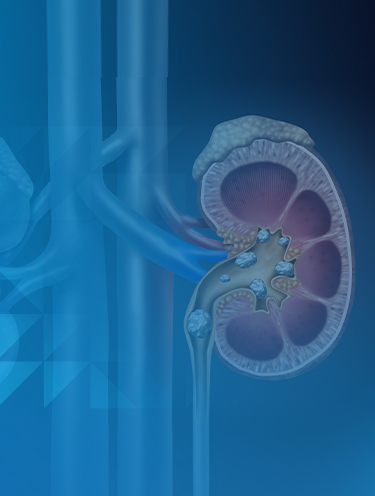Curing Prostate Cancer with Dr. Mahesh K Dhanjee

Prostate cancer, often abbreviated as CaP, is a significant health concern that affects many individuals. This condition involves the development of malignant tumours in the prostate gland, a vital part of the male reproductive system. While the phrase “prostate cancer” may sound daunting, understanding the nuances of this disease, including its symptoms, causes, and available treatment options, can empower individuals to take proactive steps towards their health.
Prostate cancer is not only a medical condition but also a topic that evokes various emotions and concerns. It’s essential to approach it with both compassion and factual information, from the signs of prostate cancer, the factors contributing to its development, to the treatment options available. Dr. Mahesh, an expert in this field, is dedicated to providing the guidance and care necessary to navigate the journey of prostate cancer with hope and confidence.
Causes and Risk Factors
Understanding the causes and risk factors associated with prostate cancer is a crucial step in proactively managing this condition. Prostate cancer is often influenced by various factors, and Dr. Mahesh is here to provide comprehensive insights into these elements.
One significant factor that elevates the risk of prostate cancer is age. As individuals grow older, their susceptibility to this condition increases. It’s essential to be vigilant and aware, especially as one advances in age.
Moreover, ethnicity can play a role in the risk profile of prostate cancer. Being of African descent is associated with an increased risk, and this form of the disease is often more aggressive. Dietary choices also play a pivotal role. The consumption of a high-fat, low-fiber Western diet has been linked to prostate cancer. Smoking is another risk factor to consider. Those who smoke may face an elevated risk of prostate cancer.
Understanding these causes and risk factors is just the beginning of your journey towards proactive prostate cancer management. Dr. Mahesh is dedicated to providing personalised care, offering insights into symptoms, treatment options, and strategies to mitigate risk factors. With his expertise and compassionate approach, you can navigate the complexities of prostate cancer with confidence and knowledge.

Diagnosis and Approach
Diagnosing prostate cancer is a critical step in effectively addressing this condition. Dr. Mahesh employs a comprehensive approach that prioritises your well-being and peace of mind. Here’s a glimpse into the diagnostic process under his expert care:
Listening to Your Concerns: Your journey begins with Dr. Mahesh’s attentive ear. He takes the time to listen to any urinary symptoms you may be experiencing, ensuring that every detail is considered. Additionally, he will inquire about your family history of prostate cancer, recognizing the significance of genetic factors.
Thorough Physical Examination: Dr. Mahesh believes in a thorough physical examination to leave no stone unturned. This may include a rectal examination to assess the prostate gland. His compassionate approach ensures that you feel comfortable throughout this process.
PSA Blood Test: A PSA (prostate-specific antigen) blood test is a pivotal part of the diagnostic process. Dr. Mahesh will request this test to evaluate your PSA levels. Elevated PSA levels can indicate potential concerns that require further investigation.
State-of-the-Art Imaging: If your PSA levels are elevated or if further assessment is needed, Dr. Mahesh may recommend an MRI scan of the prostate. This cutting-edge imaging technology provides detailed insights into the prostate’s condition, allowing for a more accurate diagnosis.
Biopsy Expertise: When it comes to confirming prostate cancer, Dr. Mahesh’s expertise shines. He has conducted over 250 prostate biopsies, utilizing state-of-the-art MRI/Ultrasound fusion technology. This innovative approach enhances precision and minimizes discomfort for patients undergoing this procedure.
Dr. Mahesh’s commitment to your well-being goes beyond diagnostics; it extends to providing compassionate care and the most effective treatment options. With his guidance, you can navigate the complexities of prostate cancer diagnosis with confidence and assurance, knowing that you’re in expert hands.
Signs and Symptoms
In the early stages of prostate cancer, patients often do not exhibit noticeable symptoms. Therefore, it’s advisable to undergo a prostate screening test annually after the age of 45. This screening encompasses a digital rectal examination and a PSA blood test. These routine screenings are instrumental in detecting any abnormalities that may require further evaluation.
If there are indications of concern during the rectal examination or an elevation in PSA levels, your doctor, Dr. Mahesh, will recommend a prostate biopsy to gather more information and make an accurate diagnosis.
In the later stages of prostate cancer, which may include locally advanced or metastatic disease, patients may experience specific symptoms that warrant attention:
Weak Urine Stream: A weakening urine stream can be a sign of prostate issues and should be discussed with Dr. Mahesh for a thorough assessment.
Blood in the Urine (Haematuria): The presence of blood in the urine is a concerning symptom that should not be ignored.
Urinary Incontinence: Urinary incontinence, or the inability to control urination, can be distressing.
Erectile Dysfunction: Erectile dysfunction is another potential symptom of advanced prostate cancer.
Generalised Body Pains: Experiencing generalised body pains can be indicative of late-stage prostate cancer. Dr. Mahesh can conduct a thorough evaluation to determine the cause and offer pain management solutions.
Bone Pain: Bone pain is another symptom that may arise in advanced stages of the disease.
By being vigilant about these symptoms and seeking Dr. Mahesh’s expert guidance, you can ensure that any potential prostate cancer concerns are addressed promptly. His compassionate and experienced approach ensures that you receive the care and support you need throughout your journey.


Care and Treatment Approaches
For patients facing prostate cancer, early detection and treatment offer a promising path towards cure while maintaining a high quality of life. Dr. Mahesh is dedicated to exploring the most suitable treatment options tailored to your unique circumstances, ensuring that you receive the best care possible.
Localised Prostate Cancer Treatment Options
Active Surveillance: In cases of early-stage prostate cancer, active surveillance may be a viable option. This approach involves regular monitoring to ensure that the cancer remains dormant, allowing you to maintain your quality of life without immediate intervention.
Radical Prostatectomy: Surgical intervention, such as robotic-assisted laparoscopic prostatectomy or open radical prostatectomy, can be effective in treating localised prostate cancer.
Prostate Brachytherapy: This treatment involves the precise insertion of radio-active seeds into the prostate gland.
External Beam Radiation Therapy: Radiation therapy is another option for localised prostate cancer. Dr. Mahesh can discuss this treatment in detail, addressing any questions or concerns you may have.
Each treatment option comes with its own set of advantages and considerations, and Dr. Mahesh takes the time to discuss these with you. Together, you and Dr. Mahesh will determine the most appropriate approach to address your localised prostate cancer.
Advanced Prostate Cancer Management
For patients with locally advanced or metastatic prostate cancer, achieving a cure may be challenging. However, Dr. Mahesh collaborates with oncologists to develop a comprehensive treatment plan aimed at slowing the growth and spread of the tumour. This may involve hormonal therapy, radiation therapy, and chemotherapy, among other strategies. The specific treatment plan is tailored to factors such as your overall health, the extent of the disease, your symptoms, and your insurance coverage.
With Dr. Mahesh’s expertise and compassionate care, you can navigate the complexities of prostate cancer treatment with confidence and hope, knowing that you have a dedicated partner in your journey to better health.
Frequently Asked Questions
Can prostate cancer be cured?
Prostate cancer can be effectively treated, especially in its early stages. The chances of a cure are higher with early detection and appropriate treatment. Dr. Mahesh specialises in prostate cancer treatment and can provide personalised guidance based on your specific condition.
What does prostate cancer do to a man?
Prostate cancer can impact a man’s health and well-being. It may lead to symptoms like urinary issues, erectile dysfunction, and, in advanced cases, general discomfort and pain. Dr. Mahesh can help manage these effects and provide tailored treatment options.
What is the life expectancy of a man with prostate cancer?
The life expectancy of a man with prostate cancer varies widely based on factors such as the stage at diagnosis and the effectiveness of treatment. Dr. Mahesh can assess your specific situation and provide prognosis information based on the latest advancements in prostate cancer care.
What are the 5 warning signs of prostate cancer?
Common warning signs of prostate cancer include urinary problems, blood in the urine, erectile dysfunction, bone pain, and general discomfort. If you experience any of these symptoms, it’s essential to consult with Dr. Mahesh for a comprehensive evaluation and diagnosis.
Can prostate cancer go away completely?
With early detection and appropriate treatment, prostate cancer can often be effectively treated and even cured. Dr. Mahesh specialises in prostate cancer management and can create a tailored treatment plan to address your specific needs.
What is the reason for prostate cancer?
The exact cause of prostate cancer is not fully understood. However, factors such as age, family history, and certain genetic mutations may contribute to its development. Dr. Mahesh can provide insights into the risk factors specific to your situation.
How does prostate cancer grow?
Prostate cancer develops when cells in the prostate gland mutate and grow abnormally. It can grow slowly or aggressively. Dr. Mahesh can assess the growth pattern of your prostate cancer and recommend the most appropriate treatment.
What is the most common cause of prostate cancer?
Age is one of the most common risk factors for prostate cancer. As men get older, their risk increases. Other factors like family history, ethnicity, and genetic mutations also play a role. Dr. Mahesh can evaluate your risk factors and provide guidance on prevention and early detection.
Who mostly gets prostate cancer?
Prostate cancer primarily affects older men, with age being a significant risk factor. Additionally, men with a family history of prostate cancer and those of African descent have a higher risk. Dr. Mahesh can assess your risk profile and provide personalised recommendations.
Can stress cause prostate cancer?
Stress is not a direct cause of prostate cancer. However, chronic stress can negatively impact overall health, and maintaining good mental health is essential. Dr. Mahesh can provide guidance on stress management and its role in your overall well-being during prostate cancer treatment.

